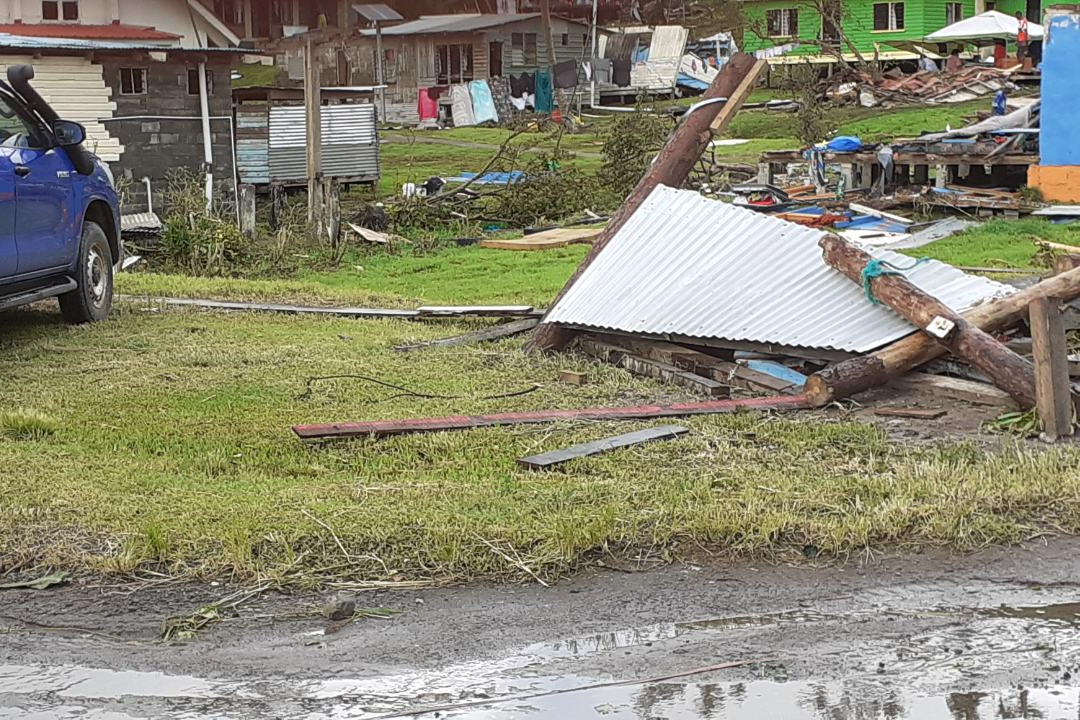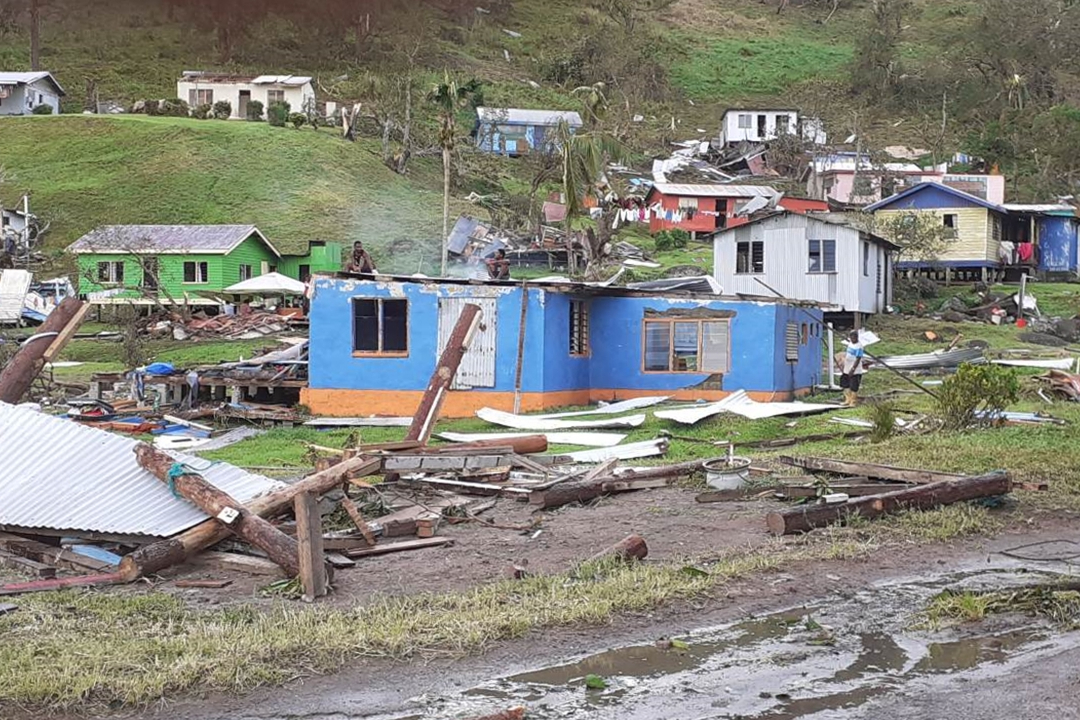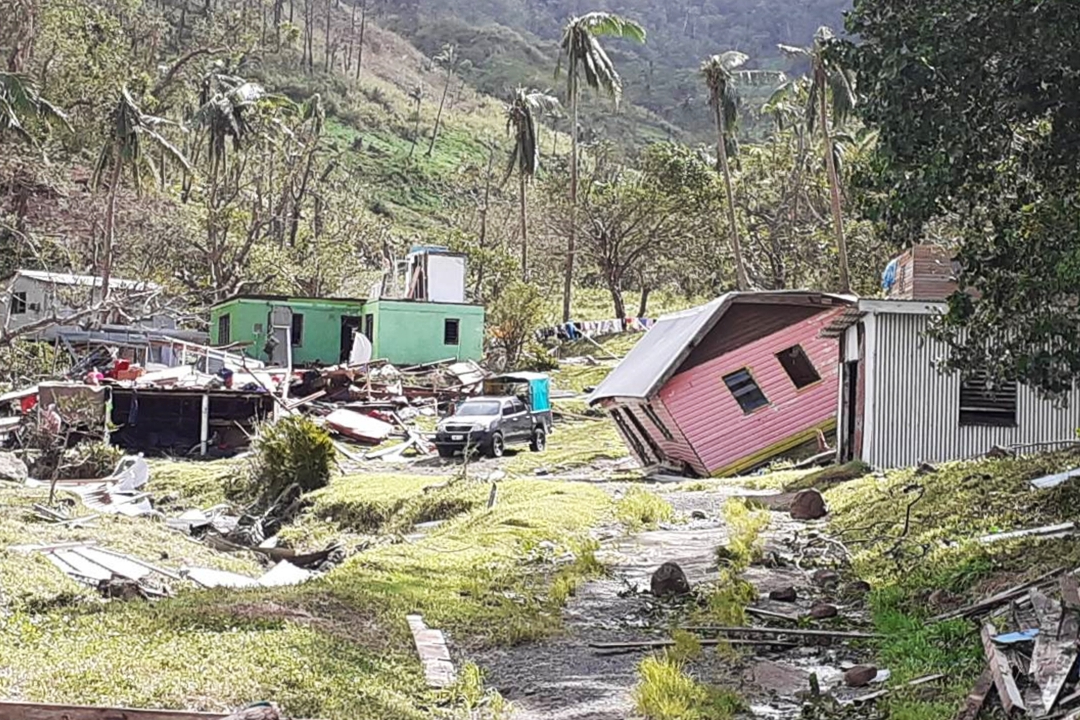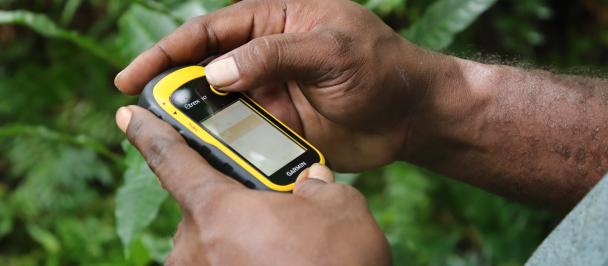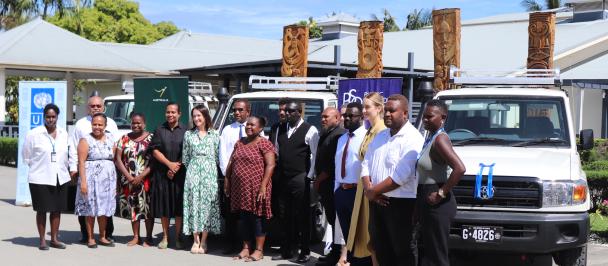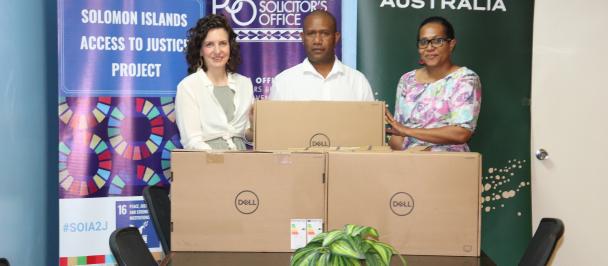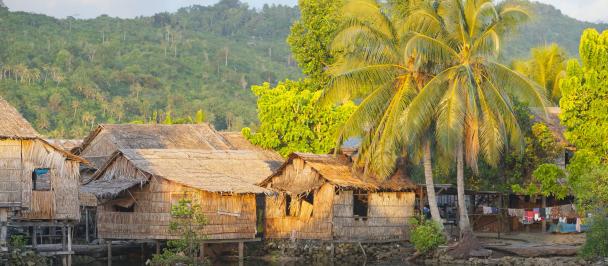Communities in Kadavu have developed resilient ways of living in remote islands. (Photo: UNDP)
The Kadavu archipelago with its plunging volcanic rainforest slopes, protected by one of the world’s largest and healthiest coral reefs, is home to a population of over 10,000, located south of Fiji’s main island of Viti Levu. Raijeli (not her real name) is one of the confident and resilient Kadavu women, who was able to re-establish her peaceful and happy home free from violence, thanks to the support she received from one of Empower Pacific’s psychosocial counsellor.
Raijeli had been in a physically and mentally abusive relationship. When her husband erupted violently, Raijeli thought it would just be a one-off incident. She believed back then that she could put up with it; however, this one-off incident continued to occur overtime. Back in 2014, as his violence escalated and resulted in eye and back injuries, she had to go to the Police to report the matter. The Police verbally warned her husband but this did not stop him from abusing her again. Earlier in 2020, Raijeli was severely beaten by her husband that she ended up in the hospital for treatment.
In the hospital, she was introduced to a counsellor from Empower Pacific, a civil society organization which provides psychosocial counselling and awareness raising programmes to communities aimed at ending violence against women and girls.
Through counselling sessions, Raijeli was helped find her way forward – to develop a safety plan for her and her children, and find the right pathway for her to access justice. The counsellor also visited her children, three in primary school and the youngest at home. The children shared their emotional stories as they had witnessed their mother being abused by their father throughout their childhood.
Raijeli felt extremely relieved after sharing her experiences with the counsellor and felt empowered to take action and access justice. She filed a formal complaint against her husband with the police. She was accompanied by the counselor during the whole process, which helped Raijeli feel understood and supported. The perpetrator was removed from the house, and eventually moved out of the village with guidance from the Police. Since then, he has never returned to the village and has never bothered her and the children again. Raijeli explained to the counsellor that her feeling of pain, suffering and fear have vanished after she received psychosocial support. Her realization of her strength and confidence brought back through the counselling sessions empowered her to take control over her situation and finally put an end to the cycle of violence in her abusive marriage.
Empower Pacific set up its new desk in Vunisea, the main town in Kadavu during 2019. There, it identified increasing needs for psychosocial counselling at community level on the remote island given the remoteness and lack of presence and access to many services. This was made possible through financial support provided from the European Union (EU) funded Fiji Access to Justice Project, implemented by the United Nations Development Programme (UNDP).
Empower Pacific also provided psychological first aid when Kadavu was hit by the severe Tropical Cyclone Harold in April this year. Families and individuals in evacuation centers, where they took refuge from the devastating effects of the cyclone, benefited from Empower Pacific’s counselling services, sharing their traumatic experiences and anxiety about rebuilding their homes which provided some measure of relief and confidence.
The justice support service grants were created by the project in 2019, aiming to strengthen the support services provided by Fijian civil society organizations (CSOs) to Fiji’s most marginalized groups to access justice. Empower Pacific is one of four CSOs that received the grants.
Psychological first aid provided by Empower Pacific encouraged communities to rebuild from the devastation caused by the Cyclone Harold in April 2020. (Photo: Empower Pacific)
Photo: Empower Pacific
Photo: Empower Pacific
Communities in Kadavu enjoy rich natural environment and resources. They promote sustainable development and tourism, conserve healthy rainforest and coral reefs, and preserve traditional villages and authentic culture. The communities have developed resilient ways of living in the remote islands overcoming devastations caused by tropical cyclones and other adverse weather events which frequently hit the islands.
The COVID-19 global pandemic has added another challenge to the communities in various ways. Their growing tourism business has been put on hold as boarders remain restricted globally. It affected people’s social and economic activities and wellbeing. As the United Nation’s study reported, incidence of violence against women has been increasing globally this year, pausing a serious setback for the already slow path towards gender equality and realization of human rights of women and girls.
In Fiji, women living in rural areas are more vulnerable to domestic violence and less active in taking action to access justice, according to a study, which included interviews with people in Kadavu, conducted in Fiji in 2018 by the Hague Institute for Innovation of Law (HiiL) through the Fiji Access to Justice project. The results showed that living in rural settings is one of the factors making women across age ranges more vulnerable than urban residents and young women were most vulnerable among them.
In addition, traditional gender roles, in which community governance systems and decision making are dominated by men, serve to discourage women from reporting and breaking the cycle of violence, thus perpetuating impunity for crimes of domestic violence. As Raijeli confirmed, some community members, including women, discourage survivors from reporting violence and instead make them feel marginalized – as if survivors were responsible for their own abuse.
The counselling provided by Empower Pacific assisted Raijeli by helping her understand how to take her situation to the formal justice system and rebuild her family’s life. The counselling also encouraged Raijeli to rediscover her various talents, such as weaving, which has become the family’s major source of income.
Amy Ucanibaravi, Empower Pacific counsellor has been assisting the communities since Empower Pacific started its regular service provision in Kadavu in 2019. She shared the challenge she has experienced in providing counselling and supporting Kadavu residents.
“Access to and communications with members of communities in Kadavu is one of the biggest challenges due to the remoteness and limited internet and phone connection. To attend the cases in remote villages, I always have to rely on the transport, land and sea, when the government officers make their visits to those remote villages, some of which are located along the coast and only accessible by boat.”
“I am always thankful for the government teams who provide a ride for me to see my clients in the communities, but it can be frustrating when I want to visit my clients to follow up their progress in counselling and I do not have my own transport.”
“There are more unreported cases of domestic violence in the villages. There are also cases of child abuse and teenage pregnancy I attended. We need to continue and increase awareness to stop gender-based violence and support for violence survivors to access justice in Kadavu.”
Under the banner of the UN Secretary-General’s UNiTE by 2030 to End Violence against Women campaign, the 16 Days of Activism against Gender-based Violence (25 November to 10 December 2020) this year amplifies the call for global action to bridge funding gaps, ensure essential services for survivors of violence during the COVID-19 crisis, focus on prevention, and collection of data that can improve life-saving services for women and girls.
His Excellency Sujiro Seam, Ambassador of the EU Delegation for the Pacific said, “The EU recognizes that gender-based violence is a global issue, but reaches twice the world average in the Pacific. Dealing with violence against women and girls is an important part of the EU Access to Justice Project in Fiji. This project focuses on awareness raising, government and civil society service provisions and institutional development. More generally, the EU supports systemic transformation to put an end to persistent gender discriminations in our society and achieve gender equality and empowerment of all women and girls’’.
The Fiji Access to Justice Project, funded by the EU and implemented by UNDP, supports access to justice, in particular for impoverished and vulnerable groups. It does so by empowering people to access their legal rights and services, strengthening key justice institutions to deliver improved services, and strengthening the capacity of CSOs to deliver justice accompaniment services, with a special focus on supporting persons with disabilities and survivors of sexual and gender-based violence.
Levan Bouadze, Resident Representative of the UNDP Pacific Office in Fiji said, “Thanks to the partnership through the project with the EU, Fijian justice institutions and civil society organizations, the initiatives in Fiji were able to continue and have been strengthened to raise awareness to prevent gender-based violence and enable survivors to access justice.”
“Elimination of gender-based violence and achieving gender equality need concerted efforts involving every part of societies. UNDP has been taking part in the initiatives in Fiji through the Fiji Access to Justice Project,” he added.
Through the Fiji Access to Justice Project, UNDP Pacific Office in Fiji in partnership with the EU and partners in Fiji’s justice sector works towards achievement of the Sustainable Development Goals, with focus on Goal 5: Gender equality and empowerment of all women and girls; and Goal 16: Peace, justice and strong institutions.
For media queries, please contact:
Tomoko Kashiwazaki, Effective Governance Programme, UNDP Pacific Office in Fiji, email: tomoko.kashiwazaki@undp.org; tel: +679 331 2500 or +679 942 2193

 Locations
Locations